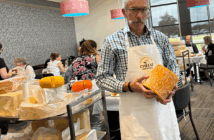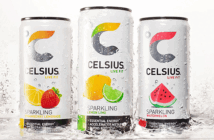
New Zealand Food Technology News asked George Weston Foods, the company behind New Zealand’s well-known brands such as Tip Top Bakery and Big Ben, what exactly has changed and how the company has dealt with it.
“Gut health has been a key driver in bakery and this is also seen through the rise in popularity of Sourdough bread,” says general manager NZ Baking Division, Mark Bosomworth.
“This interest had a further boost through lockdown as it gave people the time to experiment making their own as well as rediscovering great nourishing bakery products. Outside of toilet paper, flour became one of the hottest items in the shopping basket.”
Flexible working hours also meant consumers were changing their eating habits and opportunities around in-home snacking were on the rise.
“Off the back of this, as consumers come out of lockdown, health takes precedence and immunity-boosting foods have been at the forefront of this trend in the last 12 months.”
To add to this, the pandemic has drawn awareness around where food actually comes from and Bosomworth says research has shown that consumers are increasingly seeking out locally produced products and those made with locally sourced ingredients.
“Supporting our own and the communities they service is a trend that is expected to continue to build momentum,” he says.
As is to be expected, many consumers are continuing to focus on food that can benefit their immunity and well-being.
George Weston Foods NZ Baking Division responded to this by launching two new products; Tip Top Supersoft High Fibre which contains three times the fibre of standard white bread and the Burgen Fabulous Fibre which contains over 30% of an adult’s daily fibre requirements per serve.
The company is also looking at natural soluble fibres from different sources to increase the health benefits of its bread range and ensuring the ingredients used have more sustainable and ethical credentials.
Of course, any attempts at meeting consumer needs would not be complete without also meeting the needs of the environment. That’s why George Weston Foods’ Australian counterparts in South Australia moved from plastic bread tags to cardboard bread tags made from recycled material.
“This is soon to roll out in New Zealand and will ultimately remove 75 million pieces of plastic from New Zealand waste streams,” says Bosomworth.
“COVID-19 also impacted ingredient supply with significant disruption still continuing and brought to light how important our long-standing supplier relationships are so we can continue to feed Kiwis every day.”




























































































